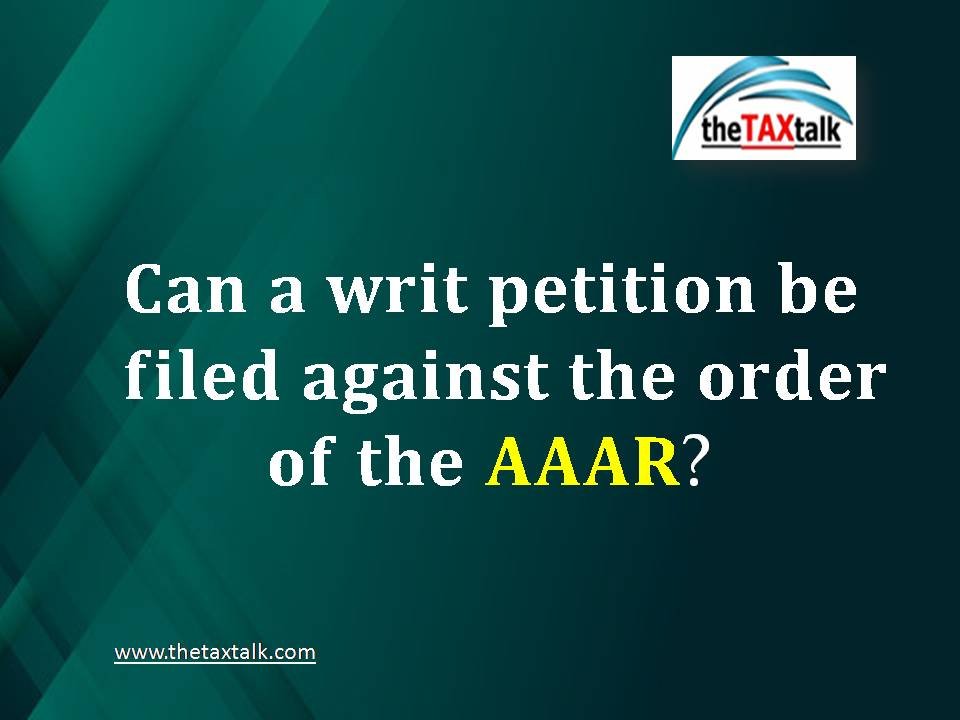![]()
𝐂𝐚𝐧 𝐚 𝐰𝐫𝐢𝐭 𝐩𝐞𝐭𝐢𝐭𝐢𝐨𝐧 𝐛𝐞 𝐟𝐢𝐥𝐞𝐝 𝐚𝐠𝐚𝐢𝐧𝐬𝐭 𝐭𝐡𝐞 𝐨𝐫𝐝𝐞𝐫 𝐨𝐟 𝐭𝐡𝐞 𝐀𝐀𝐀𝐑?
The tax professional fraternity in the country generally shares a sentiment that the GST Advance Ruling Authorities display a biased approach towards revenue. Frequently, the rulings appear cryptic and lack a detailed appreciation of the facts and relevant provisions. Consequently, when taxpayers seek an advance ruling, they must be mindful of the intricacies involved because the resulting order is binding in nature.
One can file an appeal before the Appellate Authority of Advance Rulings; however, here, as well, a pro-revenue approach can be sensed, often leading to an adverse order for the taxpayer.
In this scenario, the question arises: Can we file a Writ against an order of AAAR under Article 226 of the Constitution? In practice, it is common for taxpayers to approach the Writ Courts against order of AAAR for further remedies. However, there have been instances where High Courts have refused to accept such Writs.
In the matter of JSW Energy Limited, the Bombay Court declined to examine the merits of the case because the GST law did not provide for any appellate mechanism against an order of the AAAR. The case was remanded back to the AAAR for fresh consideration on merits and following the law. The Court emphasized that examining the case’s merits would essentially convert proceedings under Article 226 of the Constitution, which is meant for judicial review, into appellate proceedings.
Interestingly, in a recent case of Nutan Warehousing Company Pvt ltd, the Bombay High Court has stated that a Writ of Certiorari can be invoked if there is an error apparent on the face of the order. In this matter, the AAR and AAAR have adopted a view which is against a decision of the Supreme Court under the erstwhile UP VAT case, terming the order having a mistake apparent from the record, leading to the issuance of a writ of certiorari.
While the Bombay High Court looks pretty categorical in entertaining writs against AAAR orders, other High Court orders have yet to show similar inclinations.
Thus,the answer is not straightforward. taxpayers should carefully evaluate the situation before deciding to apply an advance ruling, as rushing into it might prove counterproductive.
Trust the above is useful.


